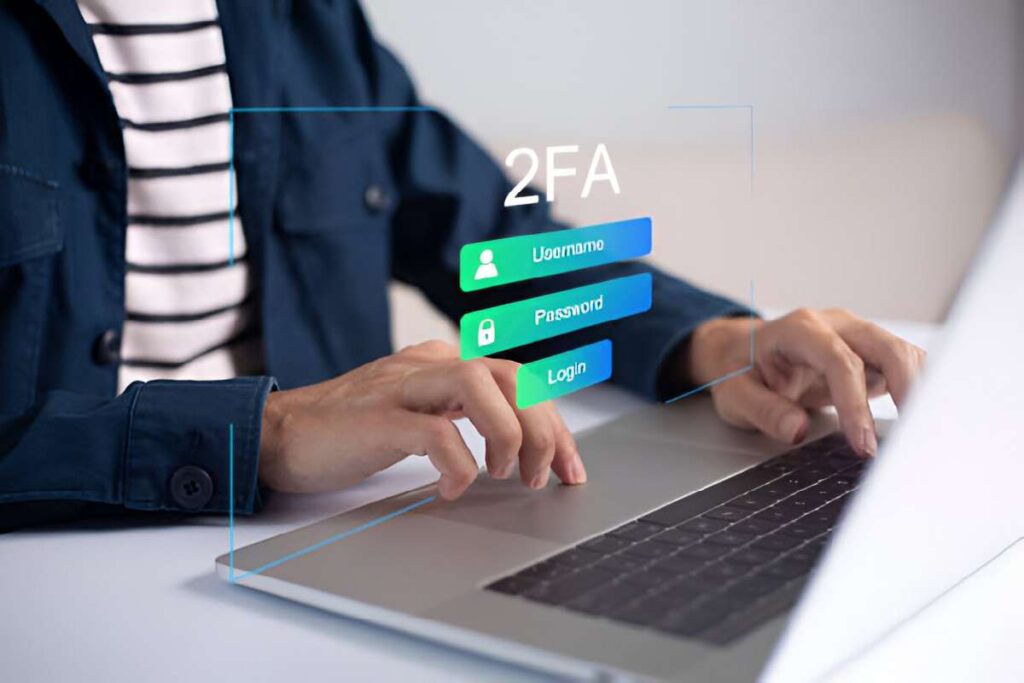Okay, so you’re here because you’ve seen thejavasea.me leaks aio-tlp370 pop up somewhere and you’re trying to figure out what it actually is. Maybe a friend mentioned it, maybe you saw it in some sketchy corner of Reddit, or maybe you’re just worried your stuff got leaked. Whatever brought you here, let’s just talk about it straight up.
The Actual Story Behind These Leaks
So thejavasea.me leaks aio-tlp370—yeah, it’s exactly what it sounds like. A data leak. Not some mysterious hacker movie stuff, just regular old stolen information that ended up where it shouldn’t be.
I’ve been watching this space for a while now, and honestly? This isn’t even surprising anymore. What bugs me is how casual we’ve all become about it. Like, “Oh great, another Tuesday, another data breach.”
Breaking Down the Weird Name
The terminology sounds confusing but it’s actually pretty straightforward once someone explains it:
AIO just means All-In-One. Think of those combo meals at fast food places, but instead of a burger and fries, it’s a bunch of stolen data packaged together.
TLP is Traffic Light Protocol. Basically a fancy way of saying “here’s how sensitive this information is.” Like those color-coded threat levels, except for leaked data.
370 is probably just a batch number. Version 370 of someone’s collection of leaked stuff. Which means there were 369 before this one. Let that sink in.
When I first saw how these things were organized, I was almost impressed by how systematic it all was. Almost. Then I remembered these are people’s actual lives being sorted into neat little folders.
Why JavaSea Became a Thing
TheJavaSea.me isn’t some underground dark web mystery. It’s just a regular website you can access from Chrome while eating breakfast. That’s what makes it weird and concerning at the same time.
I’ve poked around sites like this before (for research, not for anything shady), and they all have this same vibe. They’re set up like some kind of resource library, except instead of books, it’s people’s compromised data.
The wild part? These sites attract everyone. You’ve got security professionals checking if their clients got hit, you’ve got criminals looking for credit card numbers, and you’ve got random people who clicked the wrong link and have no idea what they’re even looking at.
It’s like a bizarre digital swap meet where nobody should actually be shopping.
What’s Actually In These Leaks
Alright, this is where things get real. When we’re talking about data leaks like this, we’re usually seeing:
Your login info from websites you forgot you even signed up for. Email and password combos that might be from that random forum you joined in 2014 because you needed to download something.
Personal details—your name, where you live, your phone number. Sometimes even more specific stuff depending on where the breach came from.
Database dumps that are basically photocopies of entire website user tables. Everything from usernames to the last time you logged in.
The really concerning part isn’t even the obvious stuff. It’s that most people use the same password everywhere. So that leak from some irrelevant gaming forum? That password probably opens your Gmail too. I’ve seen this play out so many times it’s not even funny anymore.
Should This Keep You Up at Night?
Here’s what I actually think: freaking out doesn’t help, but ignoring it is stupid.
If your information ended up in thejavasea.me leaks aio-tlp370, you’ve got work to do. But running around in panic mode just wastes time you could spend actually fixing things.
How to Know If You’re Affected
Watch for weird stuff happening:
Random password reset emails showing up when you didn’t ask for them. Especially from multiple sites at once—that’s not a coincidence.
Your accounts suddenly logging in from cities you’ve never been to. Most services will email you about this, so actually read those emails instead of deleting them.
Emails you definitely didn’t send showing up in your sent folder. This one’s creepy when it happens. I had a colleague whose email got compromised and started sending cryptocurrency scam emails to everyone in their contacts.
Charges on your card that make zero sense. Even small ones—sometimes criminals test with tiny amounts before going big.
I knew someone who saw all these signs and kept putting off dealing with it because “it’s probably nothing.” Spoiler alert: it wasn’t nothing, and cleaning up that mess took forever.
Actual Steps You Can Take Today
Enough talking about the problem. Let’s talk about what you can actually do.
Do These Things Right Now
Go to Have I Been Pwned and type in your email. Don’t worry, it’s legit—built by a security researcher who actually knows what he’s doing. It’ll tell you straight up if your email shows up in known breaches.
Change your passwords, but like, actually change them. Don’t just swap “Password123” for “Password124”. Make them different for every single site. Yeah, it’s annoying. Do it anyway.
Turn on two-factor authentication for everything that matters. Email, banking, social media, shopping sites where your card is saved. All of it. Even if someone gets your password, they’d need your phone to actually get in.
Stuff That’ll Help Long-Term
Get a password manager and actually use it. I resisted this for years because I thought I could remember everything. I was wrong, and I wasted so much time resetting passwords.
Stop clicking every link that shows up in your email. After big leaks, scammers go crazy sending fake “your account was compromised” emails. If you’re worried, type the company’s website directly into your browser instead of clicking email links.
Actually look at your bank statements. Not just glancing at the total—actually scroll through and make sure you recognize everything. Set a calendar reminder if you need to.
Think about freezing your credit if you’re really concerned. It’s free in most places and stops anyone from opening accounts in your name. You can always unfreeze it when you need to.
The Bigger Problem Nobody Talks About
You know what bugs me? We’ve just accepted that data breaches are normal now. Every few months there’s a new one, we all change our passwords, and then we move on until the next one.
thejavasea.me leaks aio-tlp370 is just one example out of thousands. Your data is sitting in hundreds of databases right now, and you have no control over how those companies protect it.
Yahoo got breached. Facebook got breached. Twitter got breached. Even Equifax—the company that’s supposed to track your credit—got breached. If they can’t keep it safe, what chance do smaller companies have?
Why This Keeps Happening
From everything I’ve seen, it usually comes down to companies being lazy or cheap or both:
Some places still don’t encrypt passwords properly. In 2024. It’s wild.
Someone in IT clicks a phishing email or leaves a server misconfigured, and suddenly millions of records are exposed.
Hackers are getting better at what they do, and some databases are just too valuable not to target.
Sometimes it’s not even hackers—it’s employees who already have access selling data or accidentally exposing it.
The annoying thing is you can do everything right and still get caught up in a breach because some company didn’t secure their systems properly.
Let’s Talk About the Legal Stuff
Real talk: going to sites like thejavasea.me and downloading leaked data can get you in legal trouble. Even if you’re “just checking” if your own info is there.
Accessing, downloading, or sharing leaked data isn’t a grey area—it’s pretty clearly illegal in most places. The whole “I was just curious” defense doesn’t hold up when you’re downloading gigabytes of stolen information.
Security researchers sometimes need to look at this stuff to understand breach patterns and help fix vulnerabilities. That’s different from regular people poking around out of curiosity or worse, looking for information they can exploit.
What Companies Need to Do Better
Since we’re on the topic, companies really need to get their act together:
Actually encrypt data properly. Not just passwords—everything sensitive.
Test their security regularly instead of waiting until after a breach to figure out where the holes were.
Tell people immediately when breaches happen instead of waiting months while trying to figure out if they can keep it quiet.
Train employees on basic security instead of assuming everyone just knows not to click suspicious links.
Stop collecting every piece of data they can get their hands on. If you don’t need someone’s birthday to sell them shoes, don’t ask for it.
I’ve worked with enough businesses to know security gets deprioritized constantly. “We’ll deal with it after we launch” turns into “we’ll deal with it after we get more funding” turns into “oh crap we got breached.”
Living in a World Where Leaks Happen
Look, I’m not saying delete all your accounts and move to a cabin in the woods. That’s not realistic and honestly it wouldn’t even help—even if you’re off the grid, your data is still sitting in old databases somewhere.
But we need to be smarter. thejavasea.me leaks aio-tlp370 is just a reminder that our information is always at risk. Companies aren’t going to magically start protecting it better unless we demand it.
You can’t prevent every possible problem, but you can make yourself a harder target. Most criminals go for low-hanging fruit. Don’t be low-hanging fruit.
Think about your house—you can’t make it completely burglar-proof, but you can lock your doors, get an alarm system, and not leave valuables visible through the windows. Same principle applies here.
Bottom Line
If I could make you remember just one thing from all this, it’s that thejavasea.me leaks aio-tlp370 isn’t someone else’s problem. These breaches affect all of us eventually.
Check if your accounts are compromised. Update your passwords to something unique for each site. Turn on two-factor authentication everywhere. Stay aware of what’s happening with companies you trust with your data.
And honestly? Be a little paranoid. In this case, paranoia is just being realistic about how insecure everything actually is.
The internet’s not getting safer by itself. We’ve got to look out for ourselves while demanding companies do better with our information. That’s just how it is now.
Stay careful out there. Trust nobody with your data, verify everything, and always assume the worst when it comes to security. Better safe than sorry when it’s your actual life on the line.





